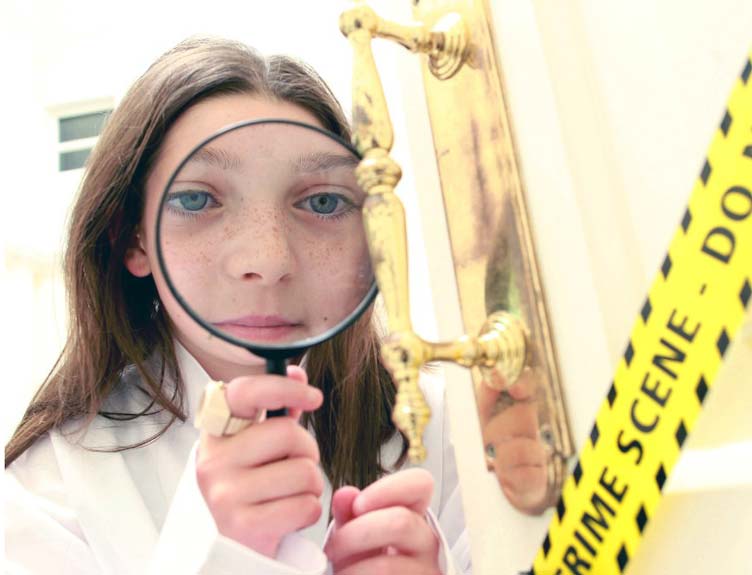Primary school children become forensic detectives

The Royal College of Surgeons in Ireland (RCSI) was transformed into a crime scene to host a free, hands-on science workshop for primary school children as part of the Dublin City of Science 2012 public engagement festival on Wednesday, 11 July 2012. ‘Cracking Crime with Science at RCSI' used the theme of crime-solving to encourage participants to develop an interest and enthusiasm for science.
The children became mini forensic detectives to help in solving a crime by taking part in inquiry based science experiments relevant to the Irish primary science curriculum.
The workshop began at a ‘crime scene' where the children were instructed what the first attending guard at a crime scene should do. The children then took part in a series of activities to solve the crime including blood typing, finger printing, chromatography, UV light experiments and chemical testing.
RCSI programme which promotes Recreation, Education and Community Health. Cracking Crime with Science, was organised by Maria Kelly, REACH Project Manager and Dr Maria Morgan, Lecturer in Molecular and Cellular Therapeutics, who facilitates the Small Science, Big Ideas programme, with workshops designed specifically for younger children, introducing them to ways scientists work and allowing them to conduct simple experiments.
Workshop facilitators included Dr Marc Devocelle, Pharmaceutical and Medicinal Chemistry; PhD student, Yvonne Smith; and RCSI medical students Sean Egan, Elizabeth Ahern-Flynn and Allan Jenkinson. The children were presented with certificates on completion of the workshops.
Maria Kelly, REACH Project Manager, said: "We are delighted to host Cracking Crime with Science as part of the Dublin City of Science programme. Enthusiasm for science begins at a young age and by introducing 7-12 year old children to fun and innovative experiments we hope to inspire them to become the next generation of scientists."
Dr Maria Morgan said: "The science activities have been designed to ensure a hands-on learning experience for the children, integrated to maximise creativity and problem solving and focused on a theme which every child is interested in."
REACH RCSI works in partnership with primary and post primary schools, youth and community groups, together with the local community on the design and delivery of educational initiatives including homework clubs, science workshops, sports and health programmes and an education information service.



